第93章 LETTER XVII(6)
Public works, such as the construction of good cart roads and bridges, the making of canals, the clearing rivers from impediments to navigation, the enlargement of experimental gardens, the introduction and breeding of sheep, cattle, and improved breeds of poultry, surveying wild land, and rebuilding and draining mining towns, are being carried on energetically. It has been found, after long and carefully-conducted experiments, that the lower mountains of Perak are admirably suited for the growth of tea, cinchona, and Arabian coffee, while Liberian coffee grows equally well on the lower lands. Coffee appears to be so nearly "played out" in Ceylon, that many coffee-planters have been "prospecting" in Perak; and now that the Government of India has consented to the importation of Indian coolie labor into the State, under certain restrictions, as an experimental measure, a future of coffee may be predicted with tolerable certainty.
One of the causes for satisfaction in connection with this State is that the Malays themselves are undoubtedly contented with British rule, and are prospering under it. Crime of any kind in the Malay districts is very rare. The "village system" works well, and the courts of law conduct their business with an efficiency and economy which compare favorably with the transactions of our colonial courts; English law is being gradually introduced and gives general satisfaction, and the native Rajahs are being trained to administer even-handed justice according to its provisions, and at the same time without trenching upon Malay religion and custom. Slavery and debt bondage, which, as hitherto practiced in Perak, have involved evils and cruelties which are unknown to any but those who have actually lived in the State, will, it is hoped, be abolished by equitable arrangement in 1883.
Various difficulties remain to be settled; the large Chinese element, with its criminal tendencies, requires great firmness of dealing, and the introduction of foreign capital and an additional form of alien labor may lead to new perplexities; but on the whole the outlook for Perak and its people is a favorable one, especially if the present Resident, Mr. Hugh Low, is able to remain to continue his task of developing the resources, settling the difficulties, and consolidating the well-being of the State.
Nothing is known of the early settlement of Perak. It was formerly tributary to the Malay sovereigns of Malacca, and afterward to those of Acheen, to whom the Perak Sultans sent gold and silver flowers as tribute. Siam has also at different times asserted sovereign rights and demanded tribute, but the Siamese were expelled in 1822 with the help of Rajah Ibrahim, the warlike chief of the neighboring State of Selangor. The Government was a despotism, administered during the last three centuries by Sultans who were connected with the ruling dynasties of Johore and Acheen.
Our connection with Perak began in 1818 by a commercial treaty between the East India Company and the Sultan, the chief object of which was to circumvent the Dutch on the subject of tin. By another treaty, in 1826, it was agreed that the Sultan should govern his country according to his own will; that no force should be sent either by Siam to "molest, attack, or disturb" Perak; and while it was stipulated that the Siamese should not attack or disturb Selangor, the English engaged not to allow Selangor to attack or disturb Perak.
So things jogged along till 1871, when the Sultan died, and the Rajahs, passing over two men who by blood were nearest to the throne, elected Ismail, an old and somewhat inoffensive man. Three years of intrigue followed, and many singular complications, which would be quite uninteresting to the general reader, and they furnished no excuse for English interference.
It is singular that the fall of Perak as an independent State was brought about by what may be called a civil war among the Chinese, who in 1871 were estimated at thirty thousand, and were principally engaged in tin-mining in Larut. These Chinamen were divided into two sections--the Go Kwans and the Si Kwans; and a few months after Sultan Ismail was elected, a dispute arose between the factions. Both parties flew to arms, and were aided with guns, ammunition, military stores, and food from Pinang, Pinang Chinese having previously supplied the capital needed for working the mines. The settlement was kept in perpetual hot water, its trade languished, and in return for military equipments the Chinese of Larut sent over two thousand wounded and starving men. The Mentri, the Malay "Governor" of Larut, although aided by Captain Speedy and a force of well-drilled troops recruited by him in India, and possessing four Krupp guns, was powerless to restore order, and Larut was destroyed, being absolutely turned into a wilderness, in which all but three houses had been burned, and, while the Malays had fled, the surviving Si Kwans were living behind stockades, while those of the faction opposed to that with which the Mentri and his Commander-in-Chief, Captain Speedy, had allied themselves, were living on the products of orchards from which their owners had been driven, and on booty, won by a wholesale system of piracy and murder, practiced not only on the Perak waters but on the high seas.